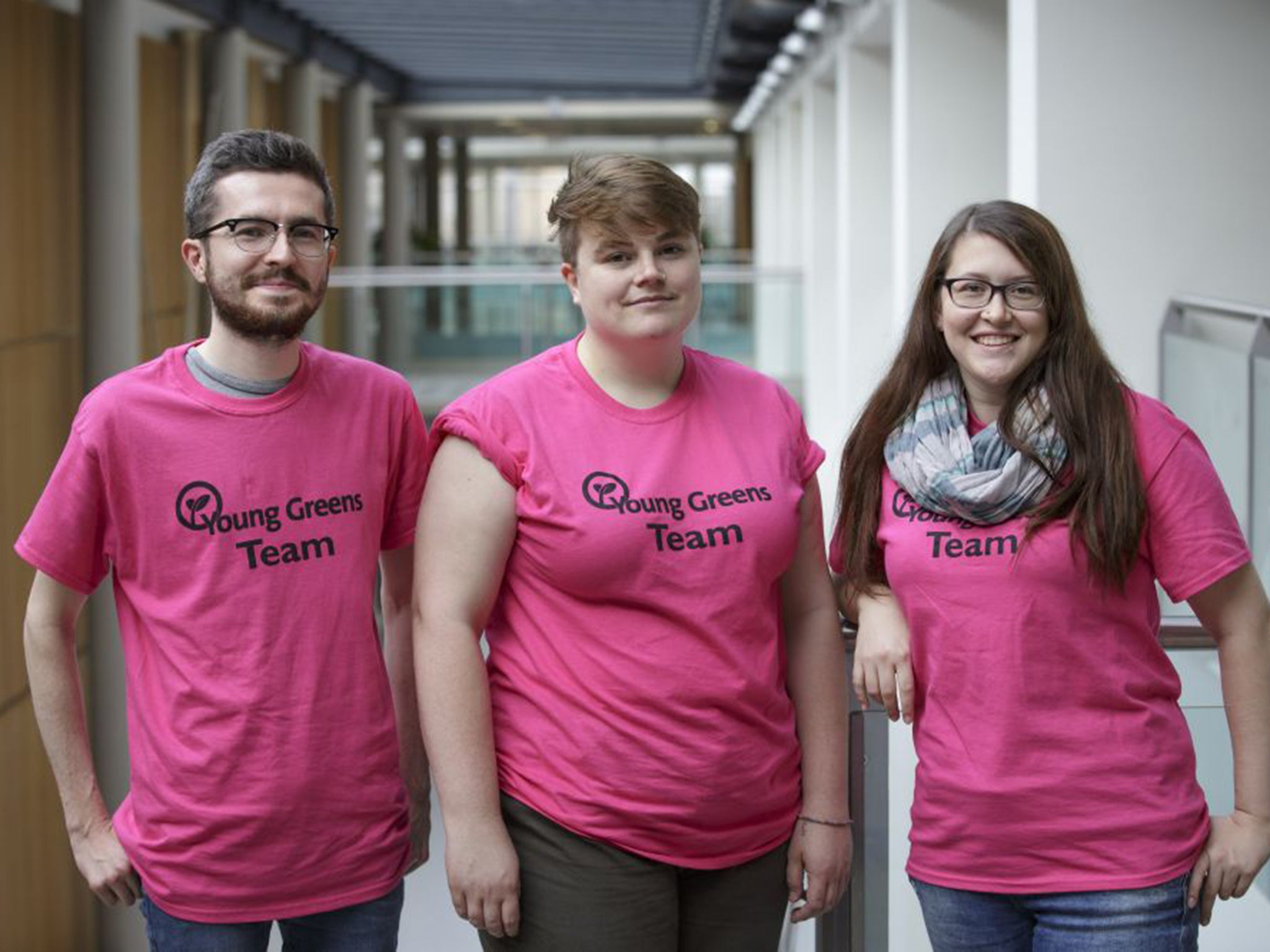I won't be referred to as 'non-male' by the Green Party while women still suffer prejudice because of our female bodies
It’s important to remember that when women were denied the vote, they were denied it because they were biologically women – regardless of their gender identity or whether they were gender-conforming

Your support helps us to tell the story
From reproductive rights to climate change to Big Tech, The Independent is on the ground when the story is developing. Whether it's investigating the financials of Elon Musk's pro-Trump PAC or producing our latest documentary, 'The A Word', which shines a light on the American women fighting for reproductive rights, we know how important it is to parse out the facts from the messaging.
At such a critical moment in US history, we need reporters on the ground. Your donation allows us to keep sending journalists to speak to both sides of the story.
The Independent is trusted by Americans across the entire political spectrum. And unlike many other quality news outlets, we choose not to lock Americans out of our reporting and analysis with paywalls. We believe quality journalism should be available to everyone, paid for by those who can afford it.
Your support makes all the difference.Last week on Twitter, a representative for the Green Party gave a shout-out for the Young Greens Women Twitter account, directing “non-male” members to give them a follow.
I – along with many others – objected to this phrasing, on the grounds that women exist in their own right, not in relation to men. Referring to women as “non-male,” positions men as the defining group, and women as “other.” It’s like saying that men are Coca Cola and women are the supermarket budget brand - or men are filet steak and women are a bargain bag of offal.
When I flagged the phrasing, I received some well-meaning responses, telling me what it “probably meant.”
“Maybe they were trying to be non-binary,” suggested one. Another proposed that: “Maybe they were trying to take gender fluidity into account – non-males might be a wider group than just women.”
Without meaning to, their explanations simply reiterated the binary I was objecting to in the first place: “male” juxtaposed with “non-male”; male presented as the polished paradigm of the human species, and everyone else lumped together as “other.” It’s like saying men are a box of Duchy Originals, and everyone else is a mixed bag of broken biscuits.
But this wasn’t the only aspect of the responses that bothered me. It was the implication that there are “women” and there are “non-binary people” (who can be chucked together with women, in the broken biscuits bag). There seems to be a lot of confusion at the moment surrounding words like sex, gender, and non-binary – so, armed with a handy MSc in Gender, let me see if I can help clear this up.
Sex is whether you’re male or female. You know when a baby’s born, and the midwife tells you what’s popped out, based on the baby’s bits? That’s biology, and the only exception to this biological binary is intersex people, who account for approximately 0.1 to 0.2 per cent of the population.
Gender is an idea of how men and women should behave. It’s a stereotype that’s dictated by society, and it bears no innate relation to sex (biology). In other words, it’s a cultural construction.
If someone identifies as non-binary, it generally means they reject the gender stereotype that’s associated with their sex. But actually, by this definition, we’re all prone to being non-binary, because none of us rigidly adheres to the stereotypes associated with our sex.
Me? I swear like a navvy who’s tarmacked his testicles, and when I blow my nose, it sounds like an elephant’s calling for back-up. I wear a dress maybe 10 per cent of the time, and I have never cleaned my oven. I handed back the only engagement ring anyone gave me, and I’ve never bought Cosmo. Do I identify as non-binary? No, I’m a woman – and like most women (and men) I simply don’t conform to all the stereotypes associated with my sex.
We’re all gender non-conforming, otherwise we’d be one-dimensional caricatures. Men would all swagger like Desperate Dan, demonstrating superior strength by lifting lorries with their little fingers. They’d brandish beards like Brian Blessed and instigate armed combat in Aldi. City boys wouldn’t wear pink shirts because – eurgh – pink’s for girls, and Agony Uncles would only ever write: “Man up!” to their male readers because men mustn’t show weakness.
Women would be ever sweet-tempered and demure, floating about in Cath Kidston florals; epilating every hair, not forgetting their forearms. They’d feel faint if they heard uncouth language, and they’d never sweat – they’d glow! They’d be as perpetually poised as Grace Kelly, and nuke Nigella at gingerbread.
The suggestion that there are ‘women’ and ‘non-binaries’ implies that while non-binary people reject these gender stereotypes, women (and men) happily accept and adhere to them.
It’s important to remember that when women were denied the vote, they were denied it because they were biologically women – regardless of their gender identity or whether they were gender-conforming.
So political parties, please: if you want women to support you, don’t refer to us as “non-male.”
Women fought for the vote – we’ve had it less than a hundred years, and it wasn’t easily won. The women in the suffrage movement didn’t go on hunger strike for today’s political parties to sweep us aside as “non-male.” They fought for “Votes for Women.”
Join our commenting forum
Join thought-provoking conversations, follow other Independent readers and see their replies
Comments